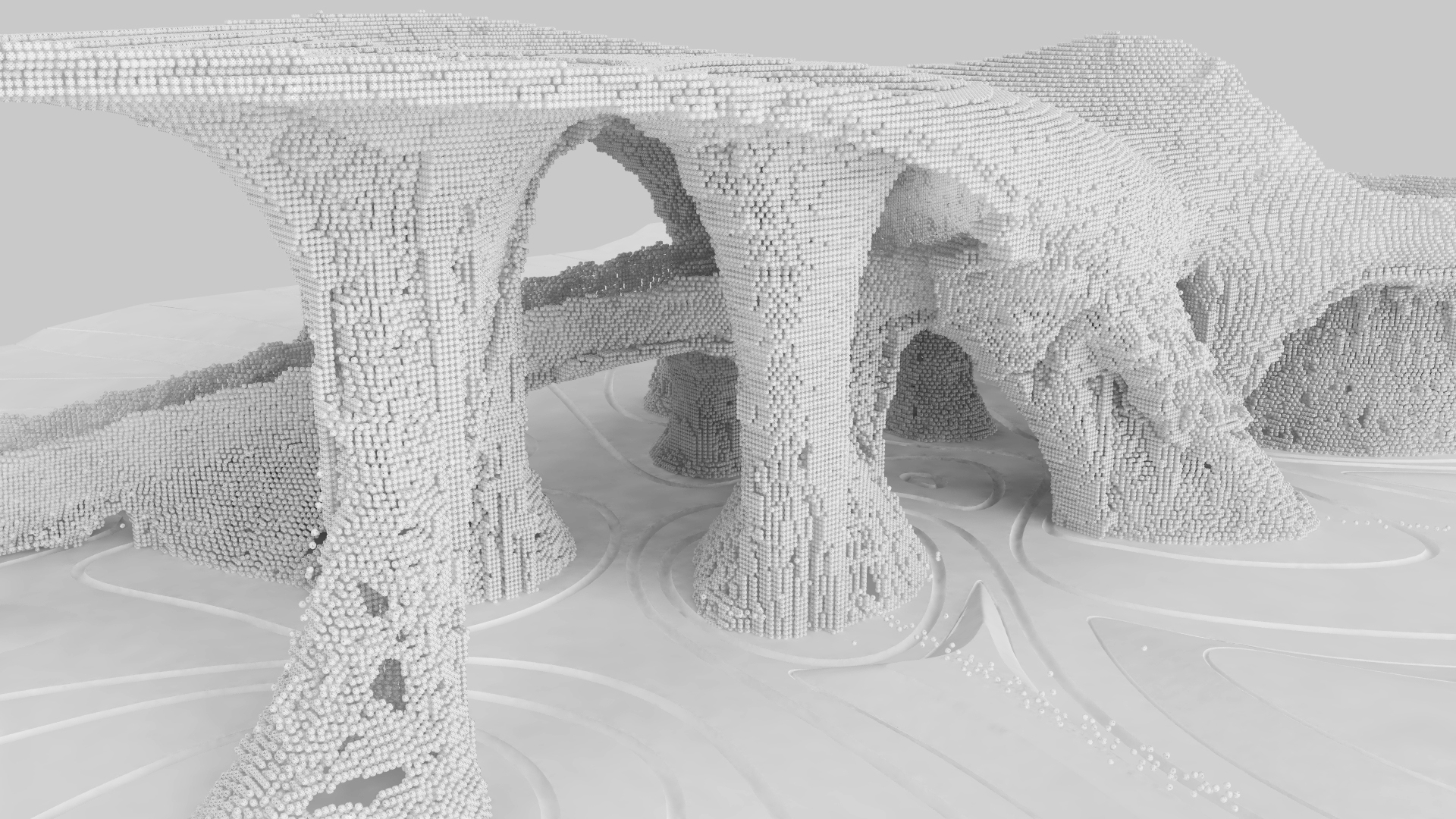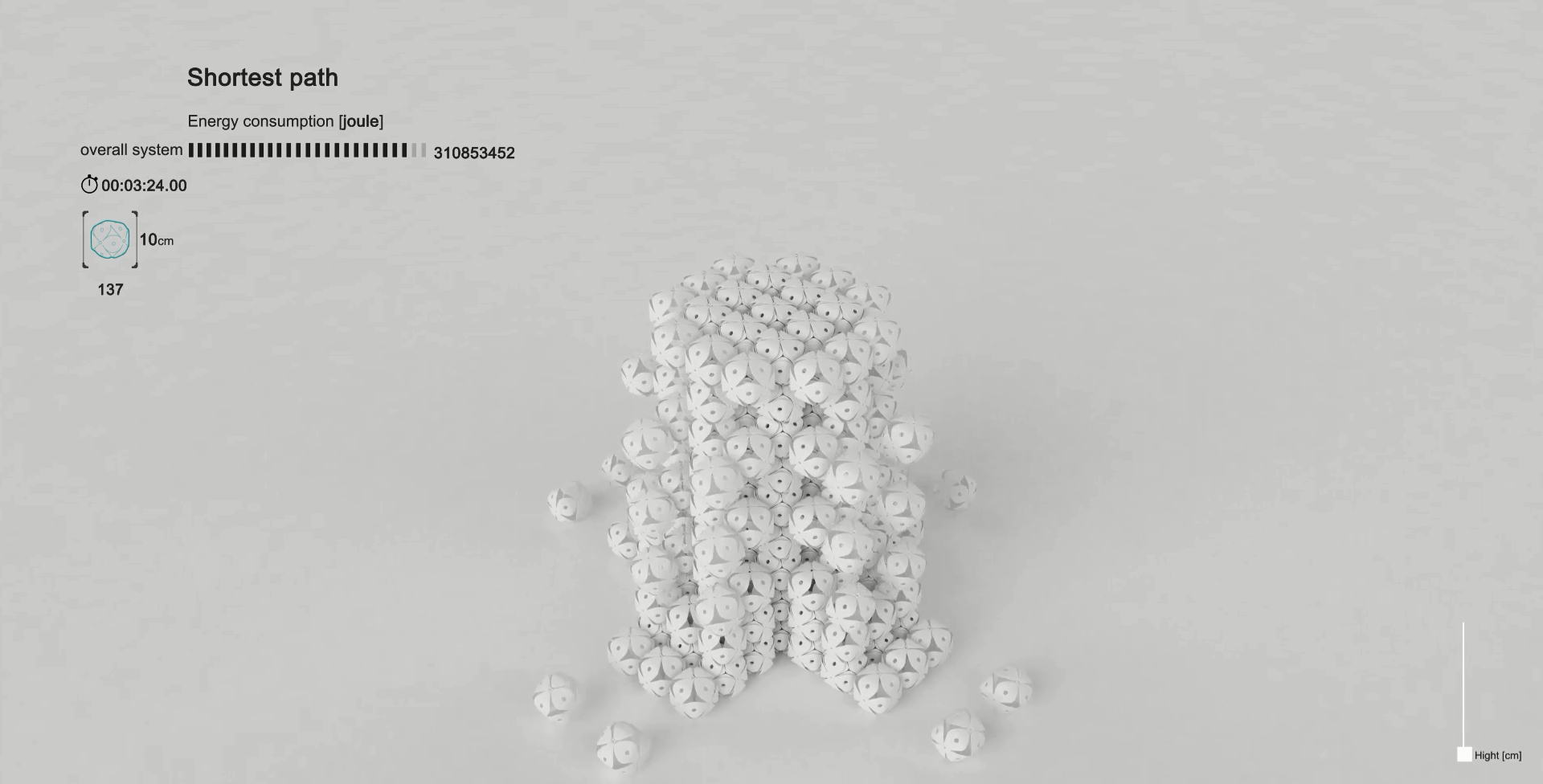Behavioural Complexit 2013-2015
Hypercell
Studio Theodore Spyropoulos
Tutors Mostafa El-Sayed, Apostolis Despotidis
Team Pavlina Vardoulaki (Greece-Bulgaria), Houzhe Xu (China), Cosku Çinkiliç (Turkey), Ahmed Shokir (USA-Egypt)
HyperCell is an architectural system that is dynamic and can respond to changes through self-awareness, mobility, softness and re-configurability. The proposal responds to changes through the self-awareness of each cell to its surroundings and the localised cell population. Every individual cell can make its own decisions and has the ability to climb, roll and change its shape. HyperCell is based on local decision making between each cell and creates spatial structures, changing continuously according to its population.
Our system exhibits methods of self-assembly where a number of cells are able to come together without predefined instructions and create structures. Computational and physical strategies of self-assembly were developed that demonstrate the ability of the single cell as well as the collective organisation. The mobility of the system works at two scales, local and global, allowing the structure to be constantly reconfigurable. Through local decision making the system can create space with information derived from the local and global data.
Architectural intervention in cities like London takes time to implement. We propose a new architecture typology that will address the need for a rapid deployment structure within the city. The project analyses data stored by the city, live data collected from different sources as well as local data harvested within the system, utilising this information to facilitate decisions on where the cells travel to and what spaces are required to be generated. If the system is idle it will enter a ‘playmode’ where cells are able to interact with each other.
























